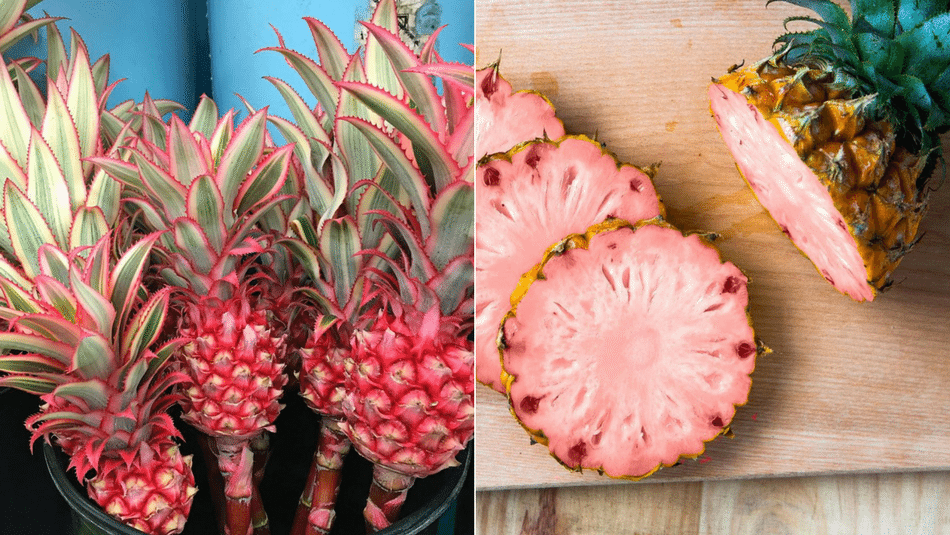The U.S. Food and Drug Administration on Dec. 14 approved for sale and consumption a strain of conventional pineapples genetically engineered to bear pink instead of yellow fruit, NBC News reports. After a winter growing season, the pink flesh pineapple is about to be all over your social media feeds as you'll start to see them in grocery stores this week.
The Costa Rica-grown, Del Monte Fresh Produce pineapples have had their genes modified to produce lower levels of enzymes that convert the pink-colored lycopene — the stuff that gives tomato its red and watermelon its pink — into yellow pigment beta carotene. While this pineapple certainly falls under the category of genetically modified fruit, will you give it a try?
https://www.instagram.com/p/BIzg519h_LY/?tagged=pinkpineapples
These "Extra Sweet Pink Flesh Pineapples," and other approved, genetically modified foods are safe for consumption despite the pink hue, according to the FDA.
However, federal law requires they be labeled to reflect their pink pigment lycopene status. The engineered pink pineapple will be the new desirable trait of the trendy fruit, we can guarantee it.
https://www.instagram.com/p/BRl—yQh3lp/?tagged=pinkpineapples
The new pineapple isn't the first generically engineered item deemed safe by the FDA in recent years in the United States, though there might not be a fruit pinker on the inside than this pineapple you'll see all over your Instagram feeds.
In 2015, the FDA approved the first genetically modified animal for U.S. consumption, a salmon engineered to grow faster than normal than its conventional counterparts. In the U.S., bioengineered soybeans make up for 93 percent of the total crop and bioengineered corn varieties comprise 88 percent of the acreage of planted corn.




